Right now they is a very tense situation in the old Soviet Union. Russia, which was the largest of the Soviet Socialist Republics, appears to be on the brink of invading Ukraine, another former SSR and the breadbasket of the defunct Soviet Union. How did this happen, why should we care and what should the U.S. do about it? I'm going to give my opinions on this complex topic.
How did we get to this point? For the answer to that you have to go far back into history. The Russian people have always had an inferiority complex when it comes to the West. They were never really taken seriously on the world stage and have always craved it. Historically, Russia, until the 20th century, was a backward country, despite the efforts of Peter the Great and Catherine the Great to pull Russia into the modern world. Even during World War I, France and England viewed their ally as just an inexhaustible source of soldiers to batter the Germans with, rather than a militarily equal country. After the Bolshevik Revolution of 1917, the West, including America, sent troops to fight against the Communists, Winston Churchill, Lord of the Admiralty at the time, said “Kill the Bolshie, kiss the Hun.” and that was while the world war was still going on. When the Bolsheviks won the civil war, Lenin and Stalin never forgot how they had be treated by the West. Even when Stalin wanted the West’s help in fighting Hitler, he was still planning and scheming against the West. The mindset, of mistrusting the West, has always permeated the government and especially the military and intelligence services.
One of the members of the intelligence services was a young Vladimir Vladimirovich Putin, who like every Soviet of the time had been raised to hate the “Main Enemy” (the U.S.). He joined the KGB in 1975, after training, he worked in the Second Chief Directorate (counter-intelligence or the spy catchers). In September 1984, Putin was sent to Moscow for further training at the Yuri Andropov Red Banner Institute the primary espionage academy of the Soviet Union. In the late 1980’s he served in Dresden East Germany as head of the KGB coordination and support effort for the terrorist organization, Red Army Faction. He retired from the KGB in 1991 as a Lieutenant Colonel. After retirement, he went into politics and in 1999 became Premier of Russia. He has been either Premier or President of Russia ever since.
On many occasions he has expressed a desire to bring the former Soviet republics back together under a government run by Putin himself. He has been critical of communism but has expressed admiration of the ability of the Soviet Union to garner respect and fear in the world and laments the fact that Russia is not currently regarded in the same manner. He has taken every opportunity to embarrass, harass and stymie the United States, sometimes, while appearing to align themselves with U.S. interests.
Russian actions regarding ISIS and Syria as well as the the Colonial Pipeline cyber attack of May 7, 2021 are examples of harassment by Russia, whether directly, like in Syria, or through a third party, like the pipeline attack.
This current situation involving Ukraine is not the first time that Putin has sent troops into areas of the former Soviet Union. In 2008 Russia invaded and occupied two areas of Georgia. The situation in Georgia was a primer for what happened in Ukraine in 2013 and what is happening there right now.
After declaring independence from the Soviet Union in 1991, Georgia found that two areas of their country, South Ossetia and Abkhazia wanted independence as well. However, Georgia did not recognize those claims and started talks to come to a solution to the problem. Russia under Boris Yeltsin, escalated the situation by backing the Ossetian rebels and even threatening to bomb the capital of Georgia, Tbilisi if independence wasn't granted. Negotiations between Russia, Georgia and the two breakaway areas, defused the situation.
When Putin became president in 2000, it had a profound impact on Russia/Georgia relations. Putin reignited the conflict between Russia and Georgia because of his belief that all the former Soviet republics should be combined into a “Greater Russia”. The situation began to escalate further in December 2001, when Eduard Kokoity, an alleged member of the Russian mob, became the de facto president of South Ossetia, in an election not recognized by Georgia. However, he was endorsed by Putin because he would torpedo the peaceful reunification of South Ossetia with Georgia. This situation was mirrored in Abkhazia, another former autonomous republic in the old Georgian Soviet Socialist Republic. The Abkhaz declared themselves independent in late 1991. Georgia has never recognized the two areas as independent but eventually an agreement was put in place to prevent any further aggression by the Russians.
In early 2002 the situation again flared up with the Russian government began massive allocation of Russian passports to the residents of Abkhazia and South Ossetia without Georgia's permission; this "passportization" policy laid the foundation for Russia's future claim to these territories as being filled with Russian citizens. In 2003, Putin began to consider the possibility of a military solution to the conflict with Georgia but this would simmer for another three years.
In 2006 after Georgia deported four suspected Russian spies, Russia began a full-scale diplomatic and economic war against Georgia with ambassadors recalled and trade sanctions imposed. It also including the persecution of ethnic Georgians living in Russia. Again the situation would maintain a sort of balance for two years.
By 2008, the situation reached a tipping point. Most residents of South Ossetia had obtained a Russian passport and Russia was supplying two-thirds of their yearly budget. South Ossetia's illegal government employed Russian citizens, who had occupied similar government posts in Russia, and Russian officers dominated South Ossetia's security organizations. By 2008 there were also Russian “peacekeepers” in South Ossetia to enforce a peace agreement between Georgia and South Ossetia. Nevertheless, as 2008 went on, the numbers of Russian troops increased. In June 5, 2008, the EU Parliament had to adopted a resolution condemning the continued deployment of Russian forces to Abkhazia. The resolution stated that the peacekeeping structure should be changed because Russia was no longer an unbiased player. Putin ignored the document.
In early August 2008 Russian troops entered South Ossetia in force under the pretense to “safeguard Russian citizens” and the Russian-Georgian War began. There was shelling by South Ossetian forces and air attacks by Russian Air Force units against targets in multiple Georgian cities including the capital Tbilisi which is 55 miles away from the conflict zone in South Ossetia.
On August 12, Russian President Dimitry Medvedev and Premier Vladimir Putin announced the cessation of the “peace enforcement” operation in Georgia. They said "The operation has achieved its goal, security for peacekeepers and civilians has been restored. The aggressor was punished, suffering huge losses." Those losses included military causalities of 80 killed and 1,174 wounded, 224 civilians killed and 547 wounded. International reactions to the conflict were muted at best, President George W. Bush for example said; “Russia has invaded a sovereign neighboring state and threatens a democratic government elected by its people. Such an action is unacceptable in the 21st century." However no country did anything to remove the Russian presence in the areas that the international community still considers sovereign territory of Georgia. To this day there are Russian forces in both South Ossetia and Abkhazia.
Another example of Russian aggression is the invasion and annexation of the Crimea. It started when a protest movement began in Kyiv (the former Kiev) in late November 2013, in the central square of the city (Euromaidan), after President Viktor Yanukovych failed to sign the Ukraine-European Union Association Agreement due to the failure of Ukrainian Supreme Council (Rada) to pass promised legislation.
Yanukovych and his Party of Regions, had won the 2010 presidential election with strong support from voters in the Autonomous Republic of Crimea as well as parts of southern and eastern Ukraine. The Crimean autonomous government strongly supported Yanukovych and condemned the protests, saying they were "threatening political stability in the country". The Crimean parliament said that it supported the government’s decision to suspend negotiations on the pending agreement and urged Crimeans to "strengthen friendly ties with Russian regions”. On February 20 2014, during a visit to Moscow, Chairman of the Supreme Council of Crimea, Vladimir Konstantinov, said the the 1954 transfer of Crimea from the Russian Soviet Socialist Republic to the Ukrainian Soviet Socialist Republic had been a mistake.
The Euromaidan protests came to a head on February 22 2014, when Yanukovych and many of his ministers fled the capital. After his flight, opposition parties and defectors from the Party of Regions put together a parliamentary quorum in the the Rada and voted to remove Yanukovych from his post on the grounds that he was unable to fulfill his duties. The Rada also voted to suspend the constitution in effect at the time as well as appointing Arseniy Yatsenyuk to serve as the head of a caretaker government until new presidential and parliament elections could be held. The caretaker government was recognized internationally except by the Russian government who said that the events had been a coup d'état and the caretaker government was illegitimate. in Crimea, opposition to the new government initially manifested as demonstrations but rapidly escalated. The city council of Sevastopol called for formation of "people's militia units to ensure firm defense of the city from extremism".
On February 23, Vladimir Putin convened an all-night meeting with the heads of the Security Services to discuss extrication of the deposed Viktor Yanukovych and at the end of that meeting Putin had remarked that "we must start working on returning Crimea to Russia." At the same time a pro-Euromaidan rally of 15,000 people was held in support of the new government. The protestors demanded the resignation of the Crimean parliament; attendees waved Ukrainian, Tatar and European Union flags. Meanwhile, in Sevastopol, thousands protested against the new Ukrainian government. The crowd voted to establish a parallel administration, and create civil defense squads with the support of the Night Wolves a Russian “motorcycle club”. Protesters waved Russian flags, chanted "Putin is our president!", and said they would refuse to pay an further taxes to the Ukrainian state. Russian military convoys were also alleged to be seen in the area.
On February 24, more protesters rallied outside the Sevastopol city administration building. Pro-Russian demonstrators demanded the election of a Russian citizen as mayor and hoisted Russian flags around the building. They also handed out leaflets to sign up for a self-defense militia, warning that the “Blue-Brown Europlague is knocking” (comparing the blue beret wearing EU to the stormtroopers of Nazi Germany). Volodymyr Yatsuba, head of Sevastopol administration, announced his resignation, citing the "decision of the city's inhabitants" made at the pro-Russian rally, and while the caretaker city administration initially leaned towards recognition of new Ukrainian government, continued pressure from pro-Russian activists forced local authorities to concede. Consequently, the Sevastopol City Council illegally elected Alexei Chaly, a Russian citizen, as mayor. Under the law of Ukraine, it was not possible for Sevastopol to elect a mayor, as the Chairman of the Sevastopol City Administration is appointed by the President of Ukraine and acts as its mayor. A thousand protesters chanted "A Russian mayor for a Russian city.
On February 25, several hundred pro-Russian protesters blocked the Crimean parliament demanding they withhold recognition of the government of Ukraine and that a referendum on Crimea's status be put to a vote. On the same day, crowds gathered again outside Sevastopol's city hall on as rumors spread that security forces would arrest Chaly, but police chief Alexander Goncharov said that his officers would refuse to carry out "criminal orders" issued by Kyiv. Viktor Neganov, a Sevastopol-based adviser to the Internal Affairs Minister, condemned the events in the city as a coup. "Chaly represents the interests of the Kremlin which likely gave its tacit approval,"
On February 27, Russian special forces seized the Supreme Council building and the building of the Council of Ministers in Simferopol and while Russian flags were raised over the buildings, barricades were erected outside. Simultaneously the “little green men”
(the name given to the Russian forces because they did not wear any insignias) were occupying the Crimean parliament building. The parliament held an emergency session. It voted to terminate the Crimean government, and replace Prime Minister Anatolii Mohyliov with Sergey Aksyonov. Aksyonov belonged to the Russian Unity party, which had only received 4% of the vote in the last election. Both Aksyonov and speaker Vladimir Konstantinov stated that they viewed Viktor Yanukovych as the real president of Ukraine and through him they were able to ask Russia for assistance.
On the same day, more troops in unmarked uniforms, assisted this time by what appeared to be local riot police (but were really Russian troops from the 31st Separate Airborne Assault Brigade dressed in riot police uniforms), established security checkpoints on the Isthmus of Perekop and the Chonhar Peninsula, which separates Crimea from the Ukrainian mainland. Within hours, Ukraine had effectively been cut off from Crimea. Shortly after, Ukrainian TV channels were made unavailable for Crimean viewers and some were replaced with Russian stations and by March 1 2014 Putin officially annexed Crimea.
During this entire crisis there were treaties between Russia and Ukraine regarding territorial integrity and the prohibition of the use of force but Putin wanted Crimea and did whatever it took to make it happen. The international community cried foul and some countries, including the U.S. imposed sanctions but that was all. The powerless United Nations allowed Russia to occupy and area of a sovereign country 10,400 square miles in area with no repercussions and Putin hasn’t forget that.
As for why we should care about what happens in a far away place that 99.9% of Americans will never visit. Again, you have to look at the big picture. This whole situation reminds me of the path the world took getting to World War II.
After World War I, large areas of Germany were taken away and added either to other countries or occupied by the Allies. New countries like Czechoslovakia and Poland, with large ethnically German minorities were created. The allies occupied the spiritual heart of Germany, the Rhineland and banned Germany from stationing any military units in the industrial center of Germany, the Ruhr Valley. When Hitler came to power one of his first moves was to have the Allies remove their forces from the Rhineland. When England and France agreed without argument or even hesitation, he became emboldened. His next move was to outright violate the Treaty of Versailles and send military units into the Ruhr. Once again the Allies let him get away with it and he was really sure he could move boldly. His next move was to occupy and annex Austria. The French and British just shrugged and said, well, they're mostly Germans anyway. Then Hitler moved into the Sudetenland, which again was viewed as Germany occupying another area populated by mostly Germans. He then occupied the rest of Czechoslovakia. This shows the dangers of letting a dictator think he can do whatever he wants without consequences. To paraphrase Professor Victor Davis Hanson. Our past indulgence (of Hitler) did not bring us respect, much less sympathy. Rather human nature being what it is, our forbearance invited ever more contempt and audacity and more dead as the bitter wages of our self-righteous morality and tragic miscalculation.
This is what is happening today with Vladimir Putin. The Bush, Obama and Biden administrations have done nothing to discourage Putin from his expansionist ways. In fact most of their policies towards Russia have encouraged Putin. Bush gave a “harshly worded statement” but otherwise did nothing when Russia invaded Georgia. Obama and his Secretary of State Hillary Clinton, fail to hinder Putin from acting against Crimea, and then announced there was going to be a “reset” in the relationship between the U.S. and Russia. Essentially an opening of cooperation with Putin. When Biden stumbled into office, he refused to order sanctions against a Russian pipeline after blocking an American one and told Putin after the cyber attack on the Colonial Pipeline that there were 16 areas of America that where off-limits to cyber attack. I’m sure that Putin will abide by that request. Biden's disgraceful “withdrawal” (I prefer the term route) from Afghanistan only reinforced Putin's realization that Biden was at best a paper tiger and at worst a imbecile managed by incompetents.
The four years Donald Trump was President showed promise for a new tougher and bolder direction in our relations with Russia. However, the “Russian collusion” hoax prevented him from being able to really deal with Putin like he would have wanted.
If Putin is allowed to invade and conquer Ukraine without any type of pushback from the United Nations (it must be an international effort not just the US) then I fear that Russia will occupy the rest of Georgia next, and if Putin still isn’t forced to back away for further territorial expansion then Belarus and the Baltic countries would also fall under the control of what, would, be in all but name, (and economic system) a new Soviet Union.
The third question is the hardest one to answer. What should we do about it? As a I said earlier whatever response we have it must be an international one. If it is just the United States acting to discourage Putin from invading Ukraine, it will not have much impact on Putin nor is it likely to succeed. It will take at least all the NATO countries and even better, a concerted UN effort to stop Russian aggression in Ukraine and elsewhere. It will be hard to walk the fine line between active discouragement of Russia and open conflict with them, but I believe that some course of action must be taken for the reasons I described above. It will also be hard to make up for the years of inaction. Where, in a reasonable world, heavy sanction against the actual government of Russia would have already been in place. To make up for that we must convince, at least the NATO countries to immediately institute sanction that will really hurt and be prepared to assist Europe when Russia turns off their natural gas pipelines. White-hat hackers must be engaged to work against the state sponsored Russian hackers that disabled the Colonial Pipeline. We don't even need to use actual government employees. Just look at this article from Wired and their story about a private person that hacked North Korea Read it here. There also needs to be a crash course in hardening access to American infrastructure and it must be a priority. We must go to the U.N. and use every trick, including dirty ones, to get as tough of a resolution condemning Russia as well as Putin himself, that we can. We need to exploit whatever back channel communications we can, to let Putin know that we are serious when we say, he will not be allowed to just waltz in and take over Ukraine like he did with South Ossetia, Abkhazia or Crimea. There also needs to be a way for Putin to withdraw from the brink and save face, maybe even a U.N. led peacekeeping mission to allow the Russians to leave the area without starting a war.
This is what I would do to reverse the current situation. I don't know if it will work and I don't know if Biden even has someone in his administration smart enough to think of these things. We can but hope. The eyes of the world will be watching and most importantly the eyes of Xi Jinping the President of China will be watching. If Putin can walk into Ukraine without much of a response from the rest of the world then I think China will invade Taiwan before 2024.
I hope this explains the current situation in a way that breaks through all the political rhetoric and illustrates the who's, why's, where’s and when’s of this extremely complicated issue. If you don’t want to miss a thought from the mind of this normal Midwestern guy, leave a comment, share this post with someone, or subscribe to this thoughtful publication, please click one of the buttons below.

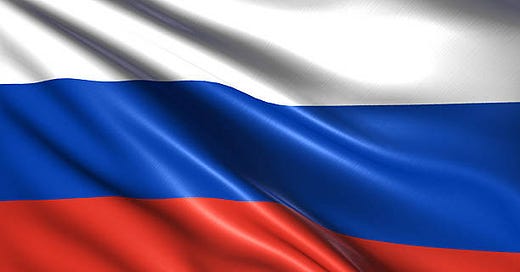



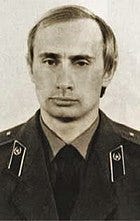

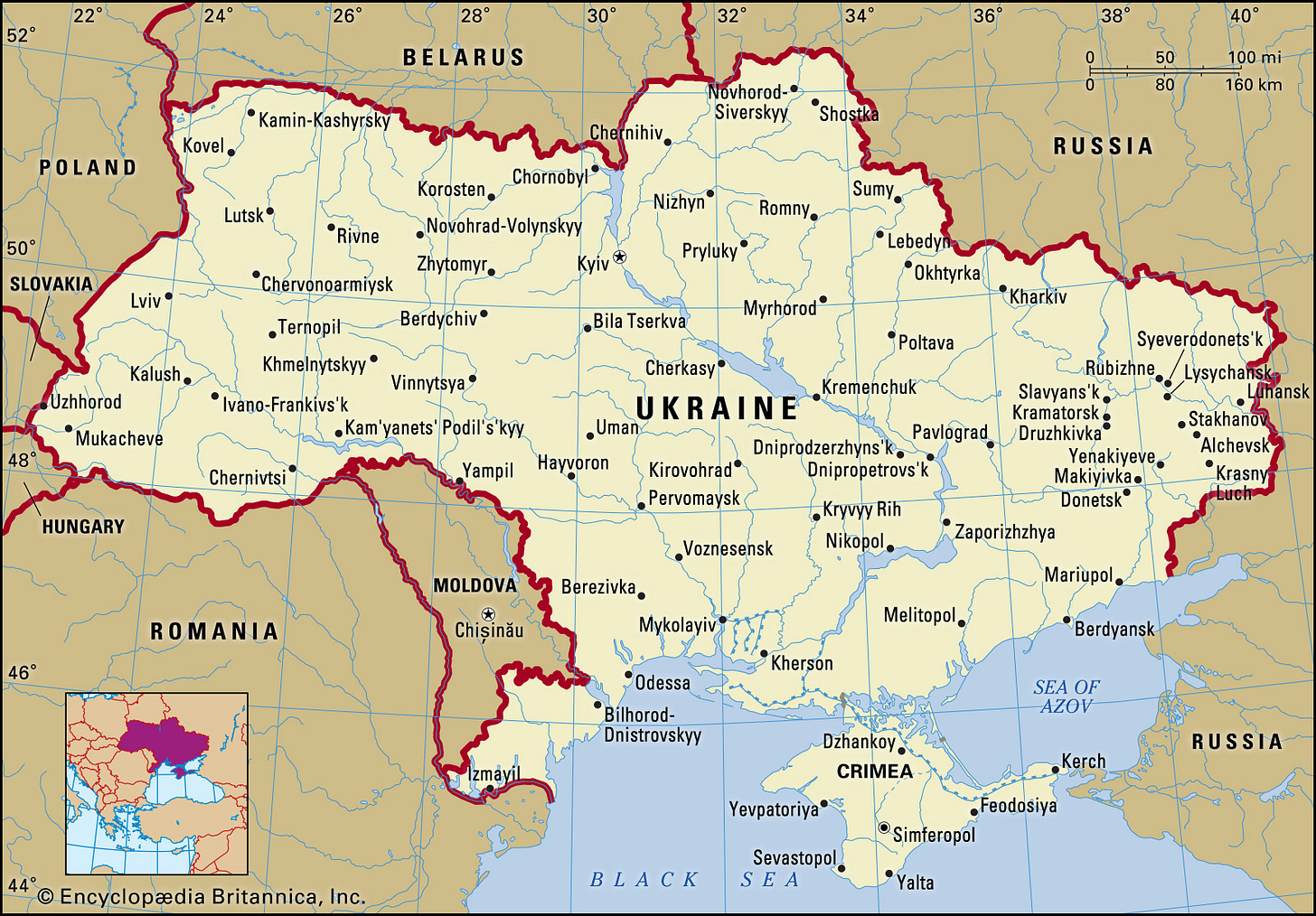

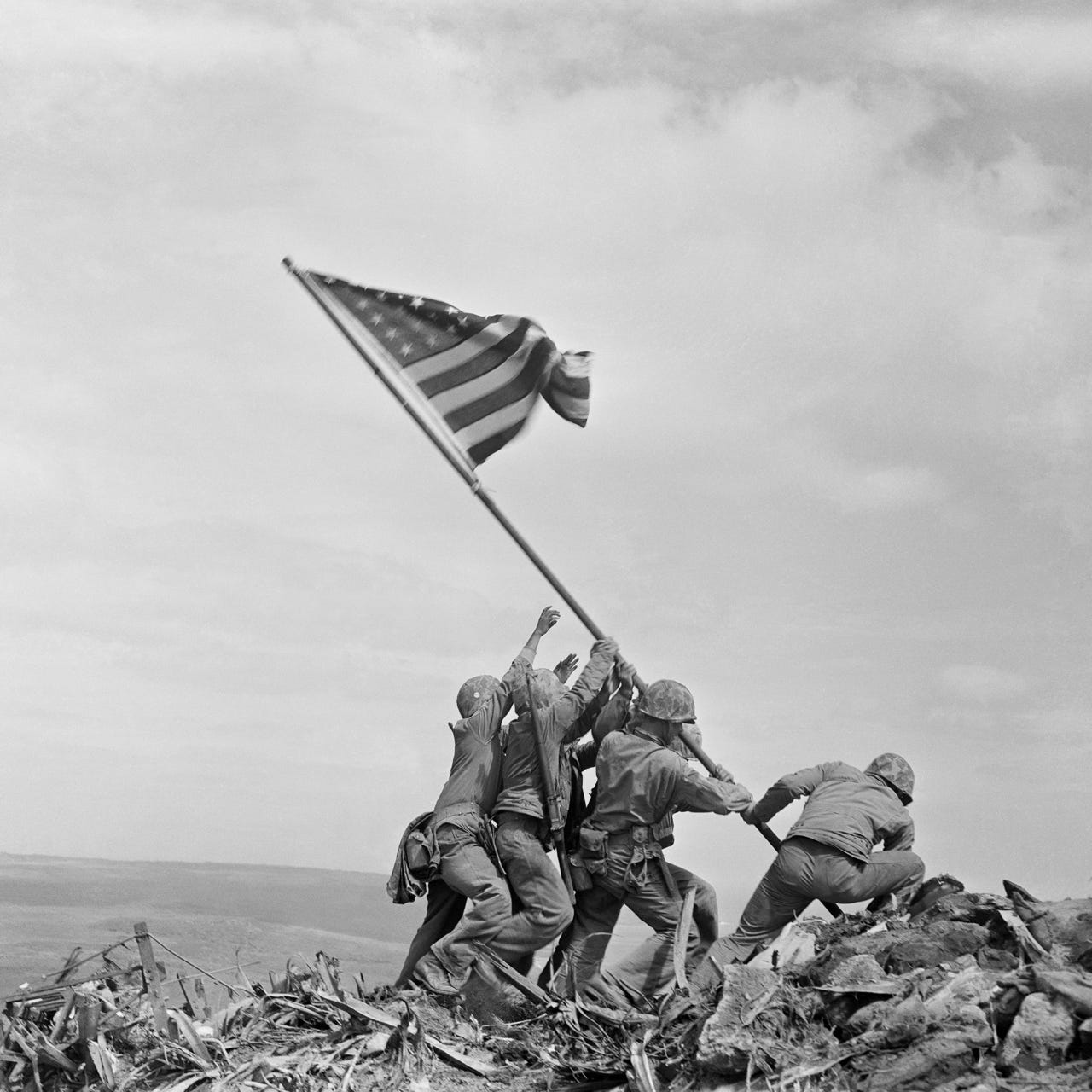
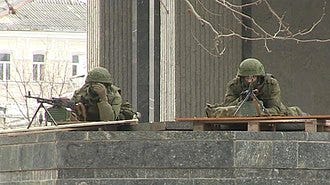
Wow it's scary how much soy is floating around, in the britches of our politicians. Well written Chris! Very good job!
Great summary of a tough situation. You are correct to point out the incompetence of the current administration.